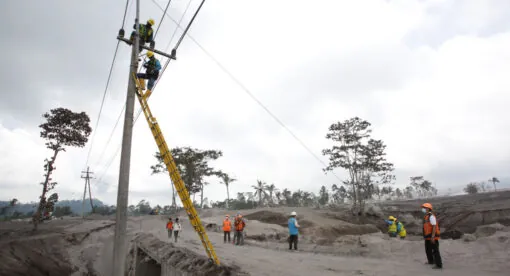The United States is now one of only four countries that have rolled back abortion rights since the mid-1990s, joining Poland, Nicaragua, and El Salvador. This backsliding on gender equality is another marker of the United States’ descent into far-right Christian nationalism. The U.S. Supreme Court (SCOTUS) ruling on Dobbs v. Jackson Women’s Health Organization, which effectively overturned Roe v. Wade and removed federal constitutional protections for abortion access, will have effects beyond any American’s access to safe and legal abortions; it will have an outsized impact on foreign policy.
According to the United Nations, forced pregnancy is a crime against humanity. The Dobbs ruling will affect several vital foreign policy issues such as: force readiness in the U.S. military; Washington’s allies’ trust in the U.S. and its status as a global leader; and the ability to provide vital humanitarian and development aid. By continuing down this path, the U.S. will regularly be committing crimes against humanity, which not only erodes U.S. leadership but also hastens Washington’s decline on the world stage.
Key Takeaways
- Individuals in the military will now need to travel longer distances and take more medical leave to access abortions, and recruitment and retention rates could decline overall but particularly among those who can get pregnant.
- While U.S. security alliances will not disappear immediately, Washington’s status as a trusted ally with a stable and democratic government is declining even further among our partners.
- Forced pregnancies and forced births are something that the U.S. will have in common with authoritarian states that have made egregious efforts to roll back human rights, putting the lives of those who can get pregnant at risk.
- The U.S. Christian right has spent over $280 million on campaigns abroad to influence laws, policies, and public opinion against sexual and reproductive rights.
- Abortion rights are inextricably tied to bodily autonomy, which is at the core of several foreign policy issues significant to the U.S., most notably the Uyghur genocide in China.
- Access to safe and legal sexual and reproductive health care, including abortion, is critical for sustainable change and to fulfilling America’s promises across the world.
Key Policy Recommendations
- Congress must end the filibuster and pass legislation that protects every individual’s right to make decisions about their own body in the name of human rights and national security.
- President Joe Biden should sign an executive order to ensure that the Department of Veterans Affairs is providing the best healthcare to service members of all genders, including access to abortions and abortion counseling.
- Biden and Congress should expand the Supreme Court immediately.
- The U.N. Security Council and the NGO Working Group on Women, Peace, and Security should introduce a new resolution that protects women’s rights by ensuring access to sexual and reproductive healthcare.
- When possible, U.S. foreign policy should do its best to circumvent the Helms Amendment by providing direct cash assistance to individuals who may be in need of reproductive healthcare.







